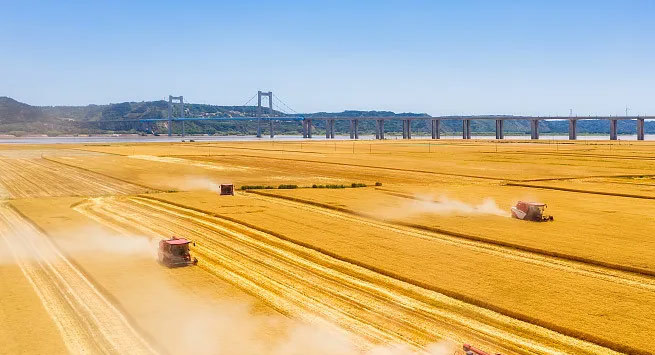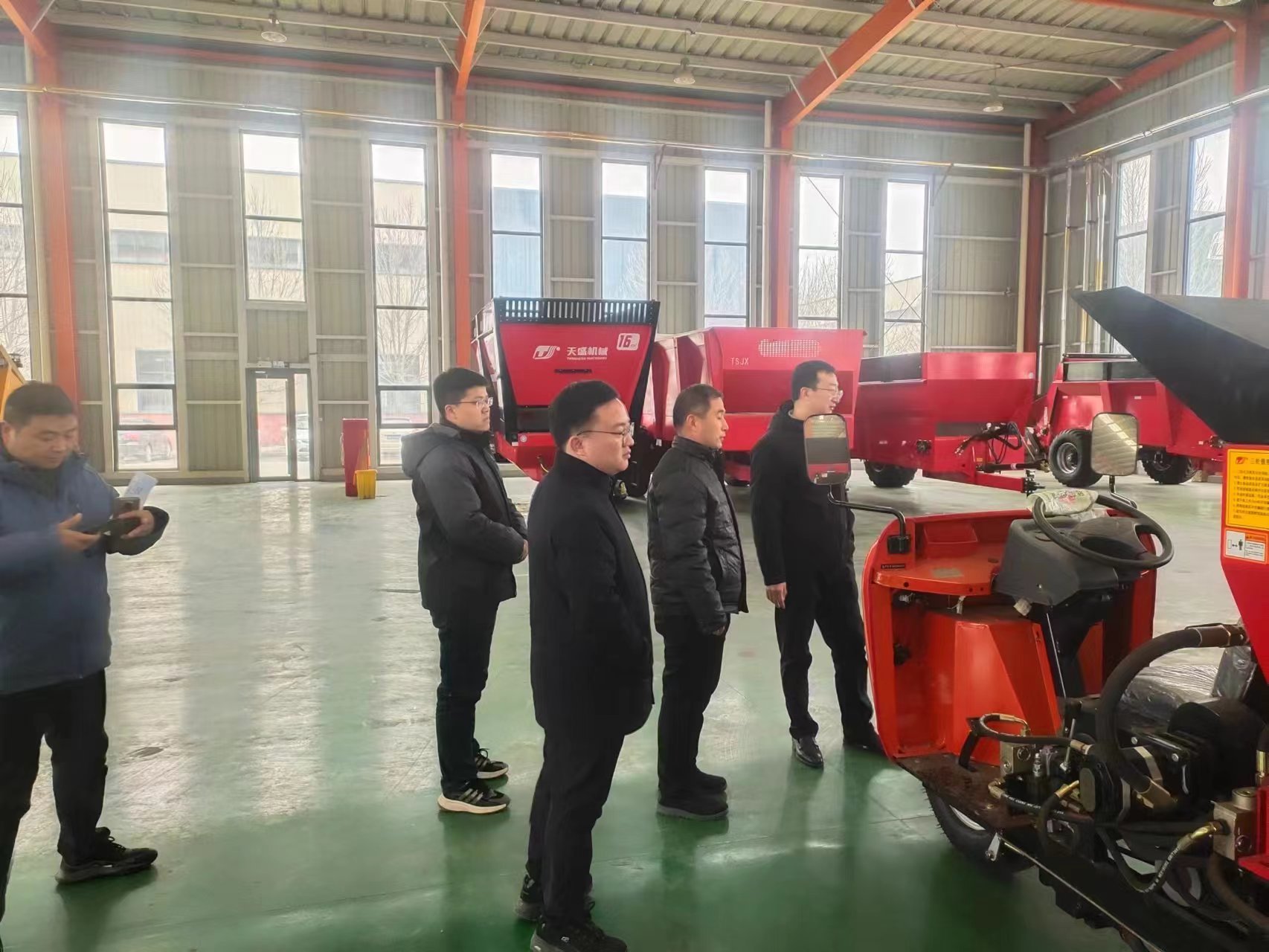General Secretary stressed the importance of developing distinctive agriculture in saline-alkali land.
Release time:
2023-07-13
President Xi Jinping has always been deeply concerned about farmland and food security. During a recent visit to Huanghua, Cangzhou, Hebei Province, he inspected a wheat field in an arid and saline-alkali area, investigating the promotion and industrialization of drought-resistant and alkali-resistant wheat cultivation.
President Xi Jinping has always been deeply concerned about cultivated land and grain production. This time, during his visit to Huanghua, Cangzhou, Hebei Province, he visited a wheat field on saline-alkali land to inspect the promotion and industrialization of drought-resistant and saline-alkali-tolerant wheat cultivation.
More than a year ago, in October 2021, during an inspection tour in Shandong Province, President Xi Jinping visited the Yellow River Delta Agricultural High-tech Industry Demonstration Zone and a modern agricultural experimental and demonstration base on saline-alkali land. He observed the growth of soybeans, alfalfa, quinoa, and green manure crops, and learned about the ecological protection and comprehensive utilization of saline-alkali land, as well as the breeding and promotion of salt-tolerant plants.
Although the crops inspected during the two visits were different, both focused on saline-alkali land.
During his inspection tour in Shandong, President Xi Jinping emphasized that "the comprehensive utilization of saline-alkali land is of great strategic significance to ensuring national food security and securing China's food supply." During his recent visit to Cangzhou, he reiterated that "the comprehensive utilization of saline-alkali land is a strategic issue that must be given high priority." These remarks highlight the crucial strategic role of saline-alkali land.
In December 2020, President Xi Jinping pointed out at the Central Economic Work Conference: "China has a small total amount of cultivated land, its overall quality is not high, and there are insufficient reserve resources. I have always attached great importance to this issue and repeatedly emphasized it."
China has approximately 1.5 billion mu (approximately 100 million hectares) of saline-alkali land, of which about 500 million mu (approximately 33.3 million hectares) has the potential for development and utilization. If this "dormant" reserve of cultivated land resources can be awakened, and the existing cultivated land stock is used effectively while increasing the land increment, it will significantly expand, improve, and increase the efficiency of cultivated land resources.
During his inspection of the Yellow River Delta Agricultural High-tech Zone, President Xi Jinping pointed out that, "Land resources are very precious, and the development of salt-tolerant crops is very meaningful for increasing the amount of land." "The 1.8 billion mu (approximately 120 million hectares) red line for cultivated land must be adhered to, and 500 million mu (approximately 33.3 million hectares) of saline-alkali land must also be fully developed and utilized. If salt-tolerant crops are developed, it will play an important role in ensuring China's granary and food supply."
Salinization is known as a "stubborn disease" of land, with high soil salinity causing low yields or preventing crop growth. The management and utilization of this "special cultivated land" has always been a challenging task for agricultural scientists.
In Cangzhou, the wheat varieties inspected by President Xi Jinping included Xiaoyan 60, Cangmai 6002, and Jiemai 19, which are drought-resistant and salt-tolerant varieties. This is the result of local agricultural technicians implementing 30 national and industry technical standards around key aspects such as "planting, fertilization, sowing, and management," continuously researching and developing suitable varieties.
On May 11, President Xi Jinping inspected a wheat field on saline-alkali land in the Xianzhuang area of Jiu Cheng Town, Huanghua City, Hebei Province, to understand the local promotion and industrialization of drought-resistant and saline-alkali-tolerant wheat cultivation. Photo by Li Xueren, Xinhua News Agency
During his 2021 inspection tour in Shandong, President Xi Jinping emphasized the need to "strengthen basic research on germplasm resources, cultivated land protection and utilization" and "strive to make breakthroughs in key core technologies and important innovation fields." The first meeting of the 20th Central Committee for Financial and Economic Affairs recently pointed out that "we should pay more attention to "storing grain through technology" and break through the limitations of natural conditions such as cultivated land on agricultural production."
"Based on the reality that China has a large amount of saline-alkali land with great development potential, we should give full play to the key role of technological innovation, increase the efforts to transform and upgrade saline-alkali land, strengthen the development and promotion of crop varieties suitable for saline-alkali land, effectively expand the area of suitable crops, actively develop deep processing, and do a good job in the development of characteristic agriculture on saline-alkali land." During his important speech during his inspection tour in Cangzhou, President Xi Jinping put forward specific requirements for the comprehensive utilization of saline-alkali land.
The fundamental way to ensure stable and increased production lies in science and technology. When inspecting agriculture, President Xi Jinping always engages in in-depth exchanges with farmers and agricultural technicians to understand the situation and provide guidance. During his visit to Cangzhou, he also had cordial exchanges with agricultural experts from the Chinese Academy of Sciences and local farmers. These researchers, through the selection of salt-tolerant varieties, are sowing the seeds of technological advancement in agriculture, helping farmers increase production and income.
As President Xi Jinping has repeatedly emphasized, "we must strengthen the integration of agriculture and science and technology, strengthen agricultural technological innovation, and researchers should write their papers on the land, allowing farmers to use the best technology to grow the best grain."
............................................................
Please indicate the source as follows when reprinting:
Source: Xinhua News Agency
Editor: Chen Qiong
Reviewer: Wang Meihong
Supervisor: Jiang Shanjun
More news



